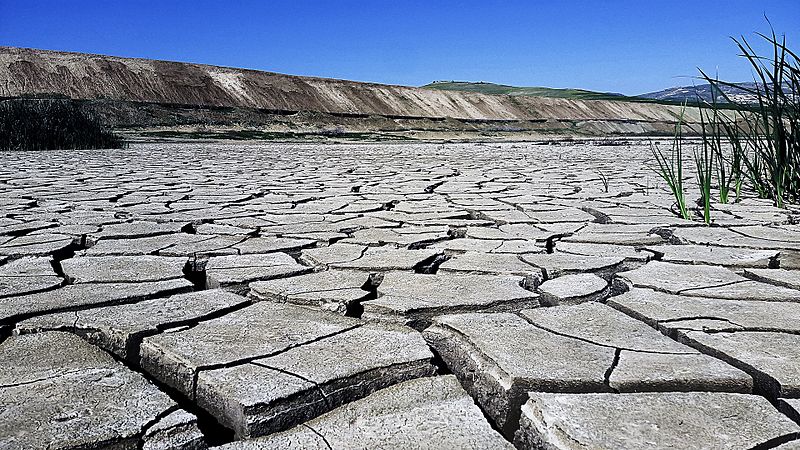In the name of ‘pragmatism’, green measures are being ditched, net zero derided. Be very clear: without slashing emissions we are in deep, deep trouble
The hope that followed the signing of the Paris climate agreement in 2016 has long gone as the global community has failed utterly to rein in emissions, which – barring a small pandemic-induced blip in 2020 – have headed remorselessly upwards ever since. And there is little sign of this changing anytime soon. Indeed, as global heating has accelerated over the past few years, instead of trying harder, the world is turning its back on measures to tackle the climate crisis.
In the UK, Labour is considering the approval of two major new oilfields in the North Sea – Rosebank and Jackdaw – with both Keir Starmer and Rachel Reeves reported to be backing the proposals, which would lock in reliance on fossil fuels at the expense of renewables. Alongside this, instead of the government introducing measures to reduce aviation emissions, such as a frequent-flyer levy and the taxing of aviation fuels, a Heathrow expansion has been greenlit and, just last week, a second runway at Gatwick.
And having announced plans in March to drop support for net zero by 2050, Kemi Badenoch’s Tories have now also signed up to sucking every last drop of oil and gas out of UK waters.
Across the Channel, green measures are under attack too. Last month, even as the continent sweltered beneath record temperatures, the EU announced that its 2040 target, which seeks to reduce emissions by 90% on 1990 levels, would be made more flexible – for which read watered down. Under pressure from business and the political right, this will now allow millions of tonnes of CO2 emissions to be offset by buying carbon credits from outside the bloc – a scam designed to permit business as usual by paying someone else to absorb the resulting carbon emitted.
Inevitably, ground zero of the fightback to prevent serious climate action is the White House. Since coming to power in his second term, Donald Trump has worked tirelessly to erase all and any climate initiatives, to the extent of pulling out of the Paris climate agreement, opening up wilderness areas to drill for hydrocarbons, trashing regulation of the fossil fuel sector and shutting down investment in clean energy. Seeing which way the wind was blowing, US banks including Citigroup, JPMorgan Chase and Goldman Sachs quickly jumped ship from the net zero alliance, which committed them to aligning their activities with the Paris agreement. Canadian and Asian banks followed, along with the major UK banks HSBC and Barclays.
Freed from any constraint, investment in the fossil fuel sector is only likely to go up, facilitating more, not less, exploitation of oil, gas and coal reserves. As it is, investment in 2024 saw a huge hike in fossil fuel finance, the world’s biggest banks committing a colossal $869bn to the sector. Back in 2020, after big losses caused by the pandemic-driven economic slowdown, oil and gas companies were almost down and out. Worried about being left with a product no one wanted, many announced big investments in renewables. BP even pledged to cut its oil and gas production by 40% by the end of the decade. Five years on, this promise is in shreds. Now fossil fuel corporations are on track to nearly quadruple, by the end of this decade, the amount of extracted oil and gas from newly approved projects.
Read more: The Guardian






